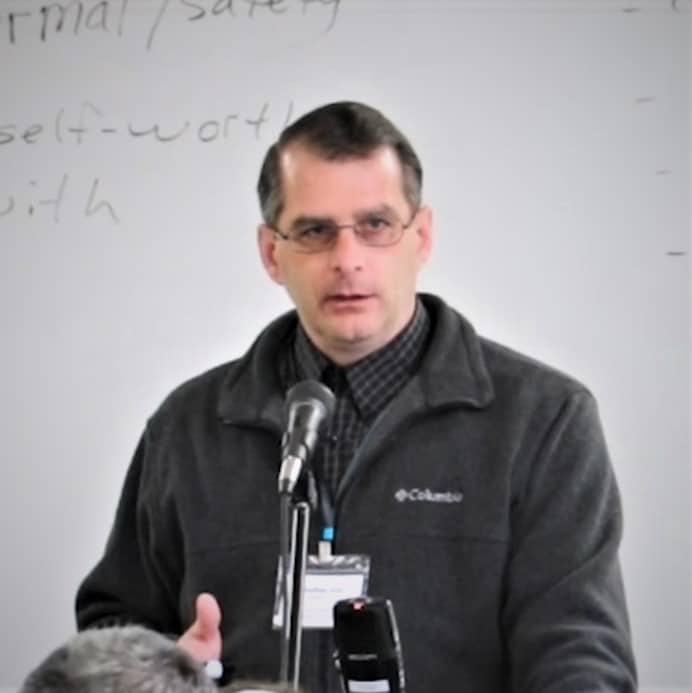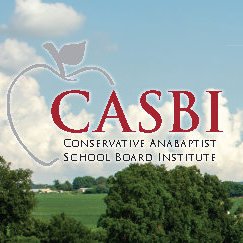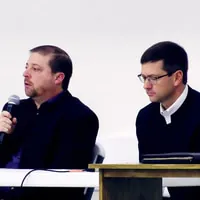What’s the purpose of parent-teacher meeting, parent-teacher activities? First of all, I believe it’s to establish common ground between the parents and the teachers. The second purpose of parent-teacher activities is to create an opportunity for parents and teachers to communicate on a constructive level. Too often, parents wait to talk to the teachers until the teacher is doing something wrong, and vice versa. Teachers wait to talk to the parents until something’s going wrong with the student and then we have to call up the parent and that’s no fun either.
And lastly, the purpose for parent-teacher activities is to inspire and instruct the community on the importance of school. That’s probably more of a formal setting maybe, where you sit down and have a meeting on an evening, bring in a speaker from out of the area, and talk about what school does for your community.
Those are three basic purposes. So, activities, what are some of the different types?
Formal: Instructional Meetings
First of all, starting with the formal, is an instructional meeting. We do this on a Wednesday evening when we would normally have prayer meeting, so there’s no excuse for anybody not to be there. [You can talk about] the history of Christian education: how did we get here? What are we doing? Because we’re now in the second generation of our Christian schools, and if it’s going to thrive, well, that’s why you’re here today. If you have a vision for it, it’s really the only way it’s going to go forward, is if the people of your congregation have a vision for Christian education. You can talk about development in the preschool years, so what happens before that child goes to school?
The most recent one we had was “Developing the Desire to Learn,” and that was kind of interesting when we brought—I don’t know know many know Anthony Hurst. He’s taught for many years. He came to our school and did that one. That was fascinating because he’s a teacher. He loves to learn. The challenges… What I took away from that one, as parents, our scope is going this way. We’re saying, “What can I eliminate from my schedule? How can I free up my life? How can I just do the essential things to make life happen?” And as a child, their life is going the other way. They’re saying, “This world is so huge. There’s amazing things to learn,” and so they’re getting into things and exploring things, and so their world’s going this way. “What else can I do? What else can I try?” And so, we’re trying to bring those two together as parents and students.
Practical tips for working together. Challenges of a small school or challenges of a large school. Somebody from outside your community can come in and address those issues because those can get sticky. That’s why it’s a good idea to bring somebody in from outside, because they don’t know what’s going on, but human nature is the same. We’re dealing with the same human nature and so they can address those things in generalities without knowing the details of your situation, but sometimes it takes an outside perspective.
It’s also an opportunity for the board to give any updates. The chairman usually gives a report on the school. We also give our treasurer time to give an update on what the finances look like and this past time, this last Wednesday evening, he went into some detail about how our finances compare to the finances of private schools in the state of Virginia, which was fascinating to me.
Scheduled: Parent-Teacher Interviews
The second type of activity is personal interviews and these provide opportunity for one on one communication. I taught school for five years and I remember my first parent-teacher interviews. I was nervous. I was scared because these parents are coming in and sitting down on the other side of the desk. What am I going to say? I mean, we can talk about the report card and their grades. What about students whose behavior isn’t what it should be?
And I remember my principal telling me, he said, “You think you’re nervous? It’s not even your child you’re talking about. The parents are just as nervous as you are because it’s their child and they’re the one that’s responsible.” But now that I’m a parent, I see it from that perspective too.
Neither the teacher nor the parent is on trial. We’re not here to straighten the other person out. It’s a time of communicating, figuring out what’s the parent’s perspective, what’s the teacher’s perspective. There’s times when I’ve had trouble with a student who wasn’t applying himself. I mentioned that to the parent and they said, “What’s new? That’s how he does his chores. It’s just his … It’s something we’re working on.” And so it was a confirmation to me, you’re doing the right thing, you realize that you’re on the same page as the parents.
Then there are times when you’re in the situation where you’re not on the same page and the parents have a completely different perspective than you do on what’s going on in this child’s life. And it’s important to realize that we’re not enemies; we’re not. We may be seeing it from a different perspective, but we’re on the same team. We have the same goal and we’re working towards the same end.
Another problem that can happen is that we wait until it’s a big problem, to get on the phone and call up dad. As a teacher, that’s a little bit late because now there’s problems with, obviously problem with a student or we wouldn’t be calling them, but there’s other social issues. There’s other pieces and this starts to become a great big problem. It’s much easier whenever they’re coming on a regular basis to sit down and say, “This isn’t a big deal, but it could become a big deal if we let it go. I started to notice this student has this problem. What can you do about it? What can I do about it? What do I need to know?” And so you have an opportunity to communicate and so many of those problems, if you get them when they’re small, don’t have the opportunities to wreck your classroom.
Another reason for the one on one interviews is that students are very adept at presenting themselves in the best light. Now that’s not to accuse them of being intentionally dishonest. But when the student goes home and tells their parents about what happened on this paper, they’re going to paint it as much as they can in their best interest. “There’s so many other things that went into this, this is not my problem.” And so when you have that circle closed, that close communication between the parents and the teacher, the student has a hard time excusing himself because the parent knows where the teacher is at, the teacher knows where the parent is at. And so the student doesn’t have an opportunity to manipulate those two.
So it’s very important that we have open communication between parents and teachers. How do we make this happen? First of all, plan your meetings. We’ve already heard about that. Get a calendar, send out your calendar, communicate what’s coming up in the next couple weeks. That way parents know. The parents are going to be there, they’re expected to be there. Set a time and date for every patron and teacher to be there. And if it doesn’t work out for the parent’s schedule, tell them to reschedule it. This needs to happen. It needs to be important to both to make that connection.
Informal: Getting to Know Each Other
And then thirdly we have the informal connections. And this can be something like a school picnic, something that the school board arranges, that the parents are there, the teachers are there, but there’s no formal time to sit down together. I believe that’s important because when it’s on the informal level, you get to learn what their interests are. What do they enjoy doing? Who are they as a person? So it takes some effort to connect on that level.
The more you can build that relationship between parents and teacher, the less opportunity you have to have that communication breakdown, [in which] you have the digging in and taking sides.
Transcription by Rev.com






